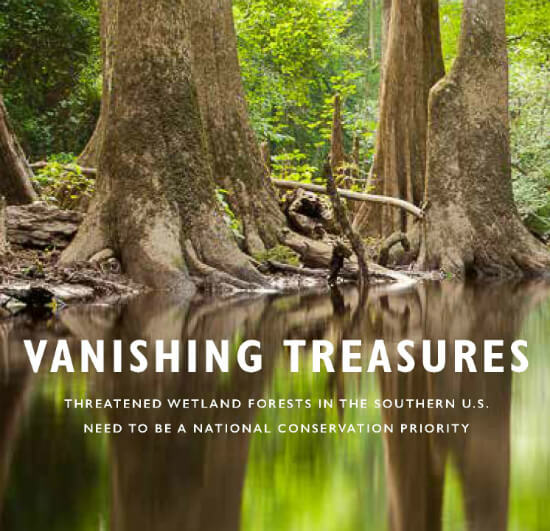 Written By Dogwood Alliance's Executive Director, Danna Smith.
World Wetlands Day
Written By Dogwood Alliance's Executive Director, Danna Smith.
World Wetlands Day marks the day in 1971 when international governments and nongovernmental organizations who were concerned with conserving Earth’s wetlands came together and signed a global conservation treaty. It was the first global intergovernmental environmental treaty in the modern era.
This international treaty, signed by 18 countries 45 years ago, set the stage for the largest intergovernmental agreement on the environment to date — The Paris Agreement — signed this past December by 195 countries committing to take action on global climate change.
As we celebrate World Wetlands Day this year in the wake of the historic Paris Agreement, it is appropriate to acknowledge the
critical role that our wetland forests here at home play in the fight against climate change. In light of recent increased periods of drought, impending threats of sea level rise and the increasing frequency and intensity of storms, keeping wetland forests standing strong along our coasts is one of the smartest investments we can make over the coming decades to keep our coastal communities safe from the impacts of a changing climate.

Sixty-five percent of our nation’s
wetland forests are found in the Southern US. Wetland forests in the region, often called “bottomlands”, span approximately 24 million acres flanking rivers running through nine states and protect entire watersheds. They provide critical storm protection, including natural flood control.
These forests generate and purify the drinking water for millions of citizens.
According to the US Forest Service, these wetland forests are also among the nation’s best at capturing and storing carbon from the atmosphere.Their large-scale protection is therefore also one of our best strategies to keep global temperatures at a level that ensures a livable planet.
Beyond critical human life support services, countless other species depend on these wetlands for their survival. Southern wetland forests are some of the most biologically important habitats in North America, ranking in the top ten for reptile, bird and tree species diversity.
Black bear hibernate in the cavities of old cypress trees. A variety of migratory songbirds nest high up in the safety of tall tupelo and blackgum branches. A diversity of carnivorous plants, some of which are found nowhere else in the world, occupy a unique niche in their wet soils.
Additionally, these wetlands are some of the most beautiful and visually unique forests to be found anywhere on the planet.
A canoe or kayak trip through a mature wetland forest in the Southeast is a life-changing experience as profound as a walk through the ancient Redwoods or the Amazon rainforest.
Yet, in spite of their beauty, diversity and life supporting services these wetland forests provide lack protection. A vast majority are found on private lands across a rural landscape. While some laws prevent these forests from being converted to agriculture or development, rampant industrial logging remains largely unregulated. Their accelerated logging in recent years to supply a new market to Europe for
wood as a fuel for generating electricity underscores the constant threat and ongoing degradation these largely unprotected forests face.
As we embrace very real sustainability challenges in the 21st Century, it’s time to prioritize the protection of our wetland forests. Today is not just a day to shine a spotlight on this forgotten forest. It’s also a day to acknowledge the need for government, conservation organizations, citizens, landowners and the private sector to come together to ensure the long-term protection of this national treasure.
Learn more about Dogwood’s legacy conservation vision
READ OUR WETLAND FORESTS BRIEF
DONATE TO PROTECT OUR SOUTHERN WETLAND FORESTS